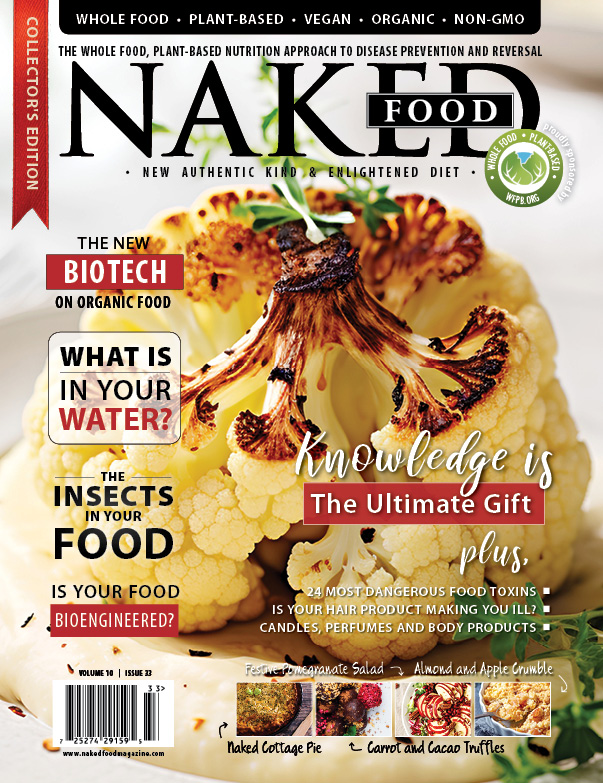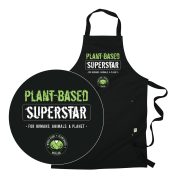Today’s crops are heavily sprayed with a chemical cocktail of synthesized pesticides, fungicides, herbicides, and fertilizers. Some of these chemicals are highly toxic to humans. For example, DDT was banned from use in the United States in 1972, yet this very dangerous pesticide is still showing up today in the placenta of birthing mothers.
Girls exposed to DDT before puberty are 5 times more likely to develop breast cancer in middle age, according to the President’s Cancer Panel. This is just one of the 85,000 chemicals we humans have created in the last 150 years that now pollute our environment.
The practice of spraying crops with artificial chemicals upsets the balance of the natural ecosystem. Crops treated this way become increasingly dependent on these artificial substances, which weakens the plant’s natural growth and defense mechanisms. Crops grown organically use only natural methods and products for fertilization, pest control, fungus control, and weed suppression that are harmless to humans without the use of any chemically synthesized pesticides, fungicides, herbicides, or fertilizers.
Because of several generations of unsustainable farming practices, the topsoil on most factory farms has been depleted of minerals. Most of the food that is mass distributed for commercial consumption is grown primarily with 3 minerals: nitrogen, potassium, and phosphorus (NPK.) These three nutrients are quite important because they make plants sprout up quickly, giving farmers a fast turn around profit. However, the other 90 important nutrients we humans need for good health such as iron, calcium, magnesium, zinc, and copper, are missing from the soil. If they are missing from the soil, they will be missing in the plants. If they are missing from the plants, they will be missing in the human body.
“…it was concluded that in 1997 one would have to eat 43 bowls of spinach to equal the iron in just 1 bowl from 1953.”
On factory farms, plants are fed high concentrations of nitrogen in order to grow quickly before they are harvested. They are not given the time needed to take in whatever few minerals may still be present in the soil. According to a UCLA study conducted on the iron in spinach, it was concluded that in 1997 one would have to eat 43 bowls of spinach to equal the iron in just 1 bowl from 1953. Not only was the spinach deficient in iron, but other minerals as well. As a consequence, when mineral levels are insufficient, the body cannot use the vitamins. The best organic farming practices focus on more sustainable growing methods such as composting, crop rotation, rock dust, permaculture, and other methods that all help to restore and preserve the minerals in the soil. These types of practices produce more mineral-rich crops.
Phytonutrients such as chlorophyll, beta-carotene, and lycopene are natural defense substances that plants produce to help protect themselves from germs, fungi, bugs, and disease found in nature. Organic fruits and vegetables have far more phytonutrients than nonorganic plants. This is because nonorganic plants become dependent upon the artificial, chemically synthesized pesticides and fungicides farmers spray on them to help them grow. Consequently, the plants stop producing many of the antibodies needed to naturally deal with these challenges.
Organic fruits and vegetables have far more phytonutrients than nonorganic plants. This is because nonorganic plants become dependent upon the artificial, chemically synthesized pesticides and fungicides farmers spray on them to help them grow.
When organic food is not available, conventional whole foods can be scraped with a natural-fiber brush and washed with a homemade formula made of 1 part sea salt and 9 parts water. Natural fiber brushes can be found in natural health stores and can be used for solid foods such as potatoes, eggplant, carrots, etc. The salt-water formula has been tested and proven to be as effective as apple cider vinegar, and more effective than commercially-sold vegetable washes. Food can be rinsed and submerged in the salt-water formula as well. It is important to rinse the food thoroughly afterward with filtered water to avoid salty-tasting food.











